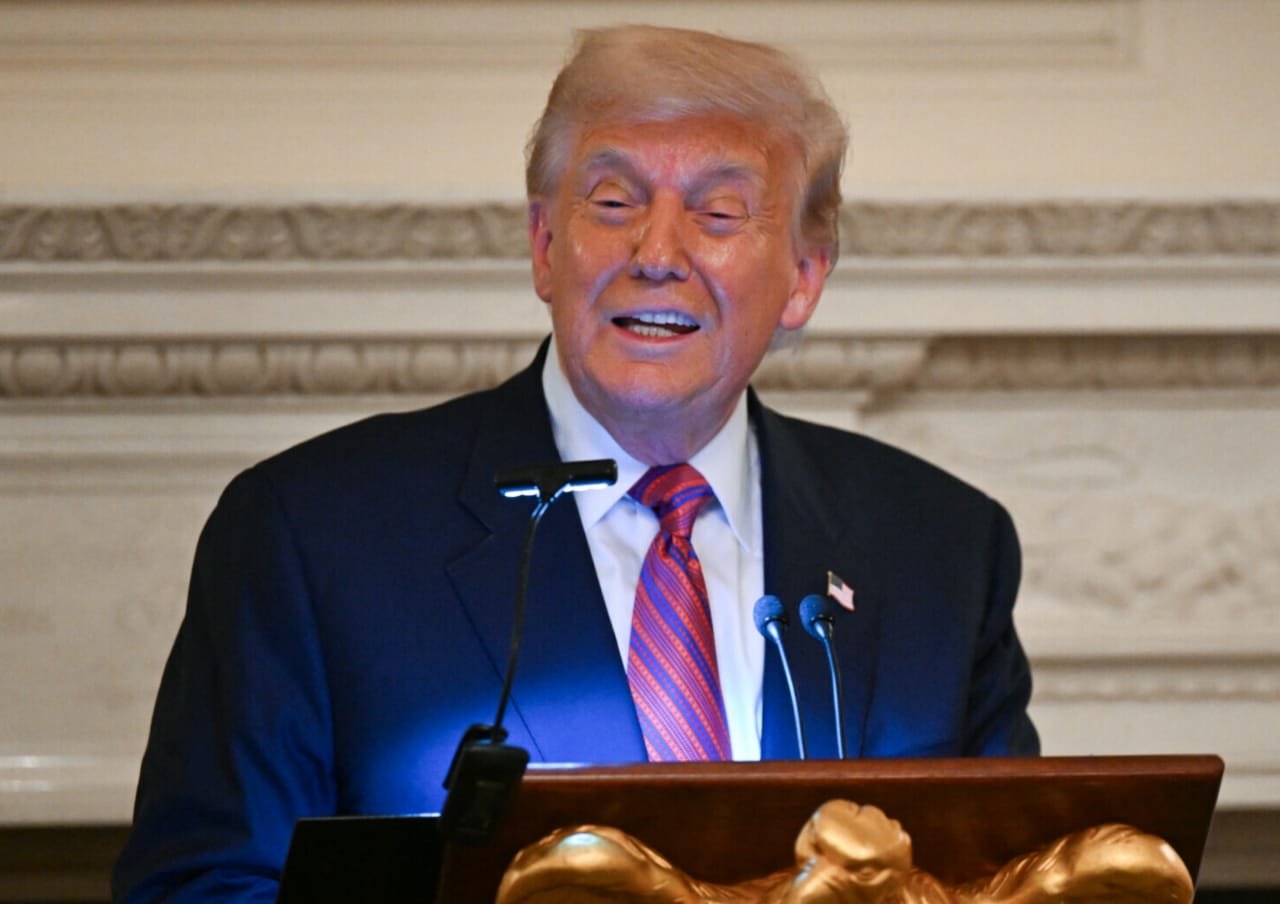
US President reiterates role in halting May hostilities, but India disputes mediation claims.
US President Donald Trump has once again sparked diplomatic debate by claiming that "five jets were shot down" during the brief but intense military confrontation between India and Pakistan in May, following the deadly Pahalgam terror attack.
Speaking at a private dinner with Republican lawmakers at the White House on Friday, Trump did not specify which country's aircraft were downed during the four-day conflict that gripped the region in early May.
"In fact, planes were being shot out of the air. Five, five, four or five, but I think five jets were shot down actually," Trump stated, referring to Operation Sindoor - India's retaliatory military operation launched after the April 22 terror attack in Jammu and Kashmir's Pahalgam that killed 26 people, including tourists.
The aircraft losses during the May conflict remain a contentious issue between the nuclear-armed neighbours. Pakistan has consistently claimed its air force downed multiple Indian jets, including three French-built Rafale fighters, and captured Indian pilots. However, Islamabad has provided no verifiable evidence to support these assertions.
India has largely remained silent on specific aircraft losses. Chief of Defence Staff General Anil Chauhan, speaking at the Shangri-La Dialogue in Singapore in May, acknowledged that the Indian Air Force lost aircraft but dismissed Pakistani claims as exaggerated.
"What is important is not the jet being down, but why they were being down. Numbers are not important," General Chauhan said, emphasising India's successful precision strikes deep inside Pakistani territory.
The French manufacturer Dassault Aviation has categorically rejected Pakistan's claims about downing Rafale fighters. CEO Eric Trappier called the assertions "factually incorrect," stating that "when the complete details are known, the reality may surprise many."
Trump has repeatedly claimed credit for brokering the ceasefire that ended hostilities on May 10, suggesting his administration used trade leverage to pressure both countries.
"We got it solved through trade. We said, you guys want to make a trade deal. We're not making a trade deal if you're going to be throwing around weapons, and maybe nuclear weapons, both very powerful nuclear states," Trump declared.
However, India has consistently disputed this narrative. New Delhi maintains that the de-escalation was managed bilaterally between India and Pakistan, without any decisive foreign mediation. Indian officials have also rejected suggestions that trade negotiations were linked to the peace process.
Operation Sindoor began on May 7 with coordinated strikes by India's Air Force, Army, and Navy, targeting what New Delhi described as "terrorist infrastructure and military assets" across Pakistan and Pakistan-occupied Kashmir. The operation concluded with a mutually observed ceasefire on May 10.
Air Marshal A.K. Bharti confirmed on May 11 that "all Indian pilots had returned safely," directly contradicting Pakistani claims of captured personnel.
The conflict highlighted the persistent tensions between the two South Asian nuclear powers and the potential for rapid escalation in the region. While Trump's latest comments have renewed focus on the brief but significant military exchange, the exact details of aircraft losses and the role of international mediation remain matters of diplomatic dispute.
The incident underscores the ongoing challenges in South Asian security and the complex dynamics of great power involvement in regional conflicts.